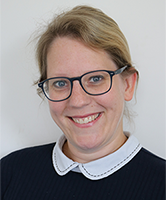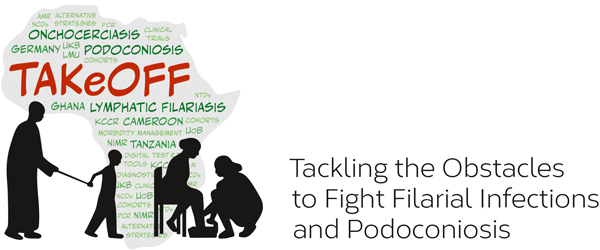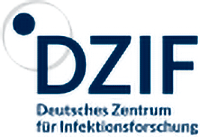
TAKeOFF PIs and Coordinators
L-R: PD. Dr. med. Inge Kroidl, Prof. Alexander Y. Debrah Prof. Samuel Wanji, Dr. Linda Batsa Debrah, Prof. Dr. med. Achim Hoerauf, Dr. Akili Kalinga and Dr. med. Ute Klarmann-Schulz
The TAKeOFF consortium brings together international experts from five research institutions, all working on filarial infection with speciality on clinical trials, immunology, coinfections, disease pathogenesis and morbidity management . The TAKeOFF collaboration aims at tackling the obstacles to fight filarial Infections and podoconiosis, hence the acronym TAKeOFF.
Filarial infections are neglected tropical diseases (NTD) caused by nematodes and transmitted by vectors that are blood feeding. It is estimated that close to 100 million people are infected with one of the filarial worms, although in some areas co-infections exist. Lymphatic filariasis accounts for the bigger percentage of filarial disease burden, with an estimated 51 million, followed by onchocerciasis with an estimated 19 million infected people.
To address filariasis and podoconiosis diseases, this consortium was established to provide both innovative treatment and morbidity management strategies which are of utmost importance in improving the care of patients, reducing suffering; and the prevention of morbidity, stigmatization and economic losses. Towards the advancement of the GPELF goals, this consortium seeks to establish a filarial clinical trial and research platform (F-CuRE) to address patient needs.
TAKeOFF COORDINATORS

Prof. Alexander Yaw Debrah
Biosketch
Prof. Alexander Yaw Debrah is a Professor of Parasitology and Global Health. He has held a number of positions at the KNUST including, Head of Department, the Dean of the Faculty of Allied Health Sciences and a member of KNUST Academic Board (the highest decision-making body of the university). His main research focus is on Neglected Tropical Diseases (NTDs) but his area of interest is in filariasis. Prof. Debrah discovered that lymphedema and hydrocele due to filariasis has genetic propensity and they are caused by overproduction of vascular endothelial growth factors (VEGFs).
He has received a number of awards including American Society of Tropical Medicine and Hygiene (ASTMH) Travel Award, a nomination by VW Foundation of Germany to attend a forum of Nobel laureates and young promising scientists in Lindau, Germany (first Ghanaian to be nominated to meet with Nobel Laureates), the prestigious bi-annual main prize of the German Paul-Ehrlich-Society for anti-infective therapy (“PEG”) and the German “Momento Research” Prize. He has held a number of international positions including being a member and co-Chair of the planning committee of Interscience Conference on Antimicrobial Agents and Chemotherapy (ICAAC) of the American Society of Microbiology.
He has led many basic and complex international clinical trials in Ghana involving anti-wolbachial drugs in a quest to find a short regimen to kill adult worms of both W.bancrofti and O. volvulus. He has treated more than 5000 patients with anti-wolbachial drugs sponsored by renowned funders like Bill and Melinda Gates Foundation, The European & Developing Countries Clinical Trials Partnership (EDCTP), European Commission, VW Foundation of Germany, etc. He has trained many Master’s and PhD students.

Prof. Achim Hoerauf
Biosketch
Prof Achim Hörauf is the Director of the Institute of Medical Microbiology, Immunology and Parasitology (IMMIP) at the University Hospital Bonn and Professor of Parasitology at the University of Bonn. He is a leading expert in neglected diseases, especially filariasis. His research and that of his group is dedicated to the better understanding of filarial diseases, through studying parasite induced immune response, genetic make-up, development of diagnostic tools and drug development.
Drug development:
He and his team discovered the Wolbachia-filaria endosymbiotic relationship and its importance in drug development and immunology. This discovery was followed by a clinical trial that confirmed that using readily available antibiotics, e.g. doxycycline, targeting the essential Wolbachia endosymbionts could be used to treat filarial worms. These results led to subsequent clinical trials using other readily available antibiotics and also the development of novel antibiotics targeting filarial worms. More information of these drug trials can be accessed through Prof. Hörauf ’s ISRCTN registry for clinical trials.
The German Center for Infection Research (DZIF, www.dzif.de) Bonn-Cologne site is coordinated by the IMMIP with Prof. Hörauf as chair. Through funding by DZIF, Prof. Hörauf and his team developed a new antibiotic, Corallopyronin A, which is currently in late preclinical development. Corallopyronin A is a natural product that is highly active against the Wolbachia endosymbionts in filarial worms, and is also active against multi-resistant Staphylococcus aureus, Rickettsia spp., Chlamydia trachomatis and Neisseria gonorrhoeae.
TAKeOFF PIs

Dr. Linda Batsa Debrah
KCCR, Ghana
BioSketch

Dr. med. Ute Klarmann-Schulz
University Hospital Bonn
BioSketch

Dr. Akili Kalinga
NIMR Tanzania
BioSketch

Prof. Samuel Wanji
University of Buea, Cameroon
BioSketch

PD Dr. Inge Kroidl
LMU Munich
BioSketch



